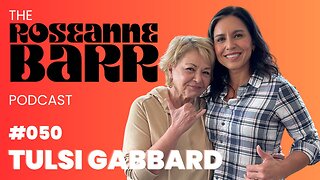30 cognitive biases & psychological misjudgments - part 1 (Do YOU Know thyself?)
Whether we know it or not, we all have biases in our thinking. Want to know how to recognize them and even benefit from them? You can, as you are taking a big step towards increased self-awareness by learning about them and how to minimize their potential downsides, so thanks for checking out this video, hopefully, you enjoy what you see. In the future, there may be individual videos covering each section but for now, we went with a concise overview.
*There is a correction that needs to be made at (00:47) where Epictetus is mistakenly quoted. The quote is actually from Kevin Vost from his book on Stoicism. I apologize for the misattribution and am not able to edit it out due to malfunctions in the YouTube editor that cause the entire audio to become out of alignment.
Whether we know it or not, we all have biases in our thinking. Want to know how to recognize them and even benefit from them? You can, as you are taking a big step towards increased self-awareness by learning about them and how to minimize their potential downsides, so thanks for checking out this video, hopefully, you enjoy what you see. In the future, there may be individual videos covering each section but for now, we went with a concise overview.
*There is a correction that needs to be made at (00:47) where Epictetus is mistakenly quoted. The quote is actually from Kevin Vost from his book on Stoicism. I apologize for the misattribution and am not able to edit it out due to malfunctions in the YouTube editor that cause the entire audio to become out of alignment.
Watch PART 2 here:
https://youtu.be/d9_8JmuhFYA
#cognitivebias #bias #cognitivebiases #misjudgement #reason #psychology #charliemunger #wisdom #tendencies #influence
Topics Covered in part 1:
1.) Fairytale dreams tendency aka excessive optimism bias
2.) Pathway to perdition tendency aka excessive pessimism bias
3.) Reward and punishment conditioning tendency
4.) Bias from mere association
5.) Self-interest and incentive bias
6.) Overly optimistic self-serving tendency
7.) Self-deception and pain-avoiding denial
8.) Inconsistency-avoidance tendency
9.) Deprival bias
10.) Do-nothing syndrome
11.) Tendency of impatience
12.) Envy or Jealousy tendency
13.) Compare, contrast, and anchoring misreaction tendency
14.) Vivid or recent availability bias
15.) Unavailability bias
Whether we know it or not, we all have biases in our thinking. Want to know how to recognize them and even benefit from them? You can, as you are taking a big step towards increased self-awareness by learning about them and how to minimize their potential downsides, so thanks for checking out this video, hopefully, you enjoy what you see. In the future, there may be individual videos covering each section but for now, we went with a concise overview.
*There is a correction that needs to be made at (00:47) where Epictetus is mistakenly quoted. The quote is actually from Kevin Vost from his book on Stoicism. I apologize for the misattribution and am not able to edit it out due to malfunctions in the YouTube editor that cause the entire audio to become out of alignment.
Watch PART 2 here:
https://youtu.be/d9_8JmuhFYA
#cognitivebias #bias #cognitivebiases #misjudgement #reason #psychology #charliemunger #wisdom #tendencies #influence
Topics Covered in part 1:
1.) Fairytale dreams tendency aka excessive optimism bias
2.) Pathway to perdition tendency aka excessive pessimism bias
3.) Reward and punishment conditioning tendency
4.) Bias from mere association
5.) Self-interest and incentive bias
6.) Overly optimistic self-serving tendency
7.) Self-deception and pain-avoiding denial
8.) Inconsistency-avoidance tendency
9.) Deprival bias
10.) Do-nothing syndrome
11.) Tendency of impatience
12.) Envy or Jealousy tendency
13.) Compare, contrast, and anchoring misreaction tendency
14.) Vivid or recent availability bias
15.) Unavailability bias
Bitclout:
https://bitclout.com/u/ProgressLeavesClues
If you feel that you need more in-depth information I encourage you to pick up some of the books mentioned below. The creativity of this video was augmented with a good amount of research from some very high-quality sources most of which are tied to the insights of Charles Munger. These resources and references and also recommended reading are listed below in approximate order of relevance.
Bibliography & recommendations:
(Creativity was used in the naming of the biases, actual biases were drawn from resources below)
Seeking Wisdom - https://amzn.to/3ccKuue
Poor Charlie’s Almanack - https://amzn.to/2K3TVjH
Influence - https://amzn.to/3b6PSyR
Decision-Making Blueprint - https://amzn.to/2Ve3TW5
https://en.wikipedia.org/wiki/Social_proof
The Psychology Book (Big Ideas) - https://amzn.to/2wDRHEm
How To Win Friends And Influence People - https://amzn.to/3bqu7tO
Thinking, Fast and Slow - https://amzn.to/2xQvxiK
https://en.wikipedia.org/wiki/Milgram_experiment
https://en.wikipedia.org/wiki/Heuristic
https://www.courageouschristianfather.com/before-you-speak-think-acronym/
https://www.brainyquote.com/authors/epictetus-quotes
https://psychology.wikia.org/wiki/Emotional_bias
https://www.azquotes.com/author/4528-Epictetus
https://en.wikipedia.org/wiki/Hormesis
https://en.wikipedia.org/wiki/Synergy
https://www.investopedia.com/terms/e/endowment-effect.asp
*As an Amazon Associate I earn from qualifying purchases.
Wear some merch:
https://teespring.com/stores/progress-leaves-clues
Get your highest quality Progress Leaves Clues merch from AMAZON:
https://amzn.to/3gldqST
-
 9:32
9:32
China Uncensored
13 hours agoBad Things Are Happening In Taiwan...
16.9K17 -
 38:24
38:24
Tucker Carlson
10 hours agoTucker Carlson and Donald Trump Jr. Respond to the Trump Verdict
95.6K539 -
 2:01:47
2:01:47
Fresh and Fit
10 hours agoOne Hit Wonder 🤡 Kicked Off For THIS...
171K371 -
 34:19
34:19
Alexis Wilkins
17 hours agoBetween the Headlines with Alexis Wilkins: The Verdict and More
45.5K30 -
 1:11:21
1:11:21
Kim Iversen
16 hours agoWW3?!? Is The West Secretly Behind Another Color Revolution Aimed At Toppling Russia? | Biden Maniacally Bombs Yemen and Russia
90.9K87 -
 1:36:46
1:36:46
Roseanne Barr
14 hours agoFor Love of Country with Tulsi Gabbard | The Roseanne Barr Podcast #50
100K176 -
 33:59
33:59
TudorDixon
21 hours agoA Story of Sacrifice and Service with Joe Kent | The Tudor Dixon Podcast
37K4 -
 27:22
27:22
The Nima Yamini Show
13 hours agoAlpha Nima Crushes Nick Fuentes & Business Tips with Dylan
35K20 -
 1:19:23
1:19:23
Mally_Mouse
13 hours agoLet's Hang - Cosplay Stream!!
52.7K2 -
 1:05:06
1:05:06
Lou Dobbs
19 hours agoLou Dobbs Tonight 5-31-2024
68.4K43